Pros and Cons of Floating Wood Floors
Anytime you’re looking into doing work on your home, it’s easy to get overwhelmed by the numerous options. For example, when choosing the right flooring option for your home, the market offers a wide variety of choices.
Choosing between various types of flooring, colors, styles, and finishes can take a tremendous amount of time and effort. And on top of these other choices, you’ll also need to decide what method to use when installing your new floor. Floating wood floors are a popular option that has gained significant traction recently.
What Does Floating Wood Floor Mean?
Floating floors are a popular hardwood floor installation style that means the floor doesn’t need to be secured to a subfloor, and can be installed over an existing surface. Floating hardwood floors can help you save money on your installation, on top of being a much quicker way to install a new floor. Because of this, it’s floating floors are one of the easier ways to add a new type of floor to an existing structure, and many types of wood flooring can be purchased in a floating setup.
Also known as engineered wood flooring, these floors provide the timeless beauty of hardwood while offering some unique advantages. However, like any flooring option, floating wood floors also have drawbacks.
In this blog post, the PA wood flooring experts from Artisan wood floors will explore the pros and cons of floating wood floors to help you make an informed decision for your home.
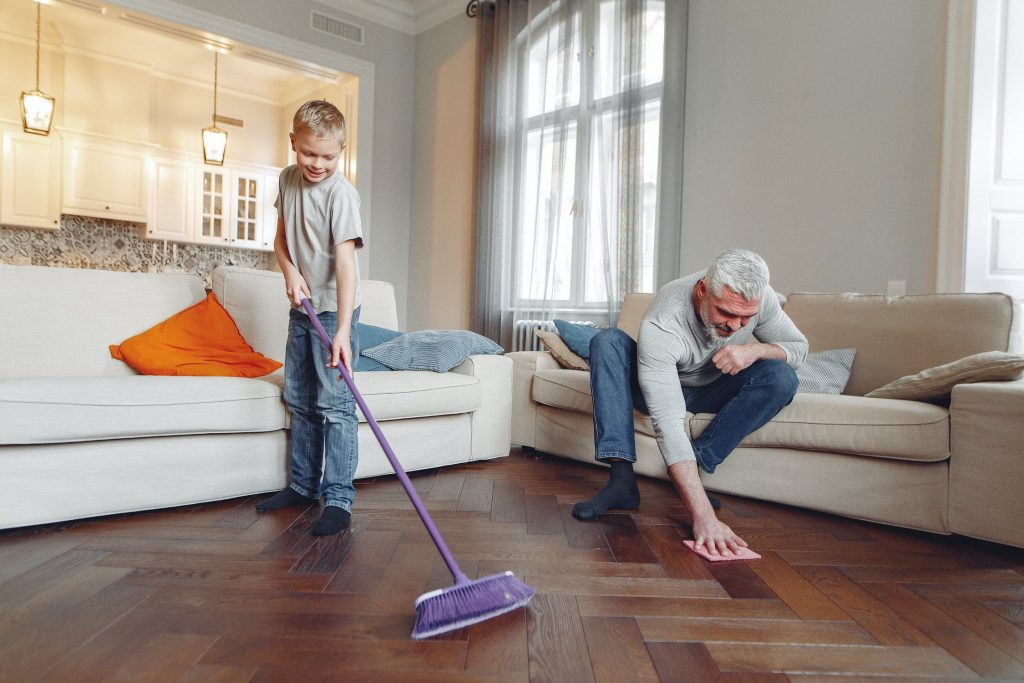
Disadvantages of Floating Wood Floors
Let’s start by taking a closer look at the disadvantages of using floating wood floors for your next flooring project:
- Sound: When floors are glued or nailed down, the connection between the subfloor and the floor reduces the sound of footfalls. But because floating wood floors are installed above the subfloor, they can feel hollow, and the gap between the floor and the subfloor can amplify sounds. So in rooms where quiet should be paramount (think a baby nursery or home office space), you may need to look into installing a high-quality foam underlayment. An appropriate underlayment can almost entirely silence sounds from the gap in floating wood floors.
- Feel: Floating wood floors can feel slightly different underfoot compared to solid hardwood floors. Some people may find them less solid or have a slight “hollow” sound when walking upon them. That can vary depending on the underlayment used and the subfloor conditions, so testing the product before making a final decision is recommended.
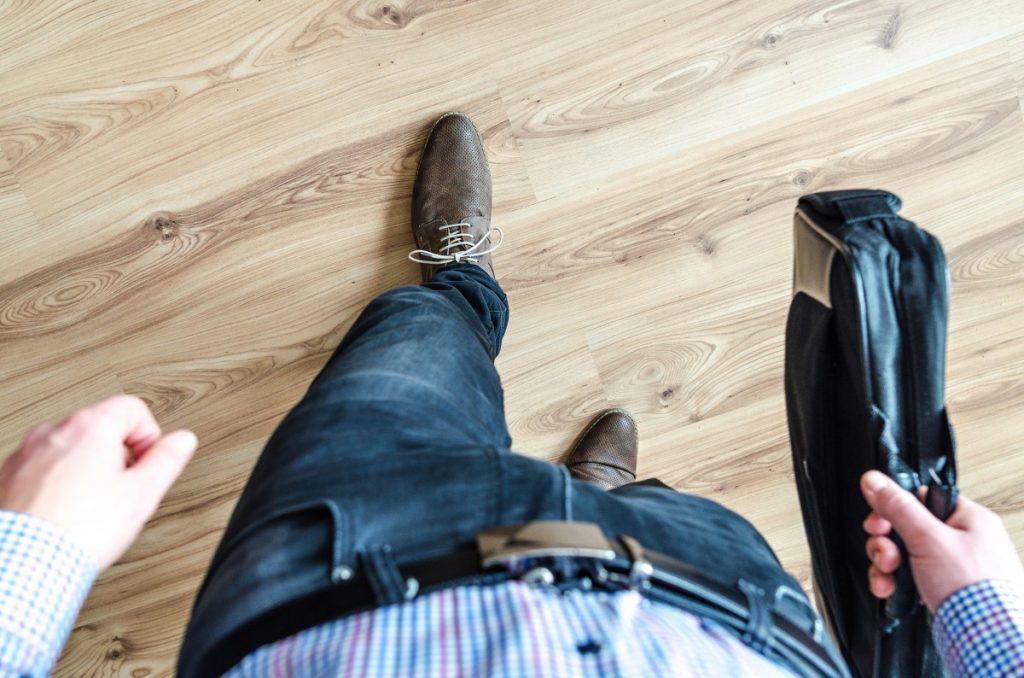
- Real Estate Value: Historically, floating wood floors have been considered inferior to glue-down or nail-down floors. This viewpoint is beginning to shift as the quality of products used for floating wood floors has greatly improved over the past few decades. Even with this shift, there is a general perception that floating wood floors may lower your real estate value compared to more premium flooring materials. Using high quality wood as your material for floating wood floors will help mitigate these concerns. However, floating wood floors are a great way to preserve historic wood flooring if you’re thinking along those lines!
- Limited Refinishing Options: Unlike solid hardwood floors, floating wood floors have a thin veneer of hardwood on top. This means that they have a limited number of times they can be sanded and refinished. Depending on the thickness of the veneer, you may only be able to refinish floating wood floors once or twice during their lifetime. Therefore, it is important to choose a high-quality product to ensure its longevity.
- Limited Longevity: While floating wood floors offer durability, they may not last as long as solid hardwood floors. While you can refinish floating wood floors, they have a thinner top layer, and floating wood floors may require replacement sooner than solid hardwood floors. However, this largely depends on the product’s quality and the maintenance level. Because of the small gap between the subfloor and the floating floor, your daily activities will have a higher impact on the floor itself, meaning it may need to be replaced slightly more frequently than a nail or glue-down flooring.
- Environmental Considerations: Although floating wood floors use less solid wood than traditional hardwood floors, manufacturing involves adhesives and synthetic materials. These components may have an environmental impact and contribute to the product’s carbon footprint. It’s essential to research manufacturers that prioritize sustainability and use eco-friendly hardwood floor materials.
Advantages of Floating Wood Floors
Ok, enough about the disadvantages. Let’s take a look at some of the pros associated with installing a floating wood floor:
- Cost-effectiveness: Floating wood floors tend to be more affordable than the cost of solid hardwood floors. While they still provide the aesthetic appeal of hardwood, engineered wood as the top layer makes them a more budget-friendly option without compromising on quality. Of course, as with any flooring installation, the cost will vary based on the types of materials used. Generally, a quality professional hardwood floor installation in PA for a floating floor will be considerably less expensive than most nail-down or glue-down flooring, except for carpet. That is because they can be laid down faster and don’t require materials like nails or adhesive.
- Easy Installation: One of the major advantages of floating wood floors is their ease of installation. Unlike traditional hardwood floors that require nailing or gluing, floating wood floors utilize a click-and-lock mechanism. That makes them ideal for DIY hardwood floor enthusiasts and can save time and money by eliminating the need for professional installation. Additionally, they can be installed over existing surfaces, meaning you don’t have to remove anything before installing one.
- Durability: Floating wood floors are engineered with multiple layers of wood, making them more resistant to moisture, warping, and expansion than solid hardwood floors. They can withstand fluctuations in humidity levels, making them suitable for installation in areas prone to moisture, such as basements and kitchens.
- Versatility: Floating wood floors come in a wide range of hardwood floor species, finishes, and styles, allowing you to find the perfect match for your interior design preferences. Whether you prefer a rustic look or a more contemporary feel, there is a floating wood floor option to suit your taste.
- Repairability: Though you may need to replace floating wood floors more often, replacing damaged planks is typically simple and much easier than replacing a glue or nail-down floor. That’s because it’s possible to disassemble the floating planks and then quickly replace a damaged board because they’re not fastened to the subfloor in any way. Just pop out and replace it!
Floating Wood Floor FAQs
The following are some of the most frequently asked questions we receive regarding floating wood floors:
1.) What are floating wood floors?
Floating wood floors, also known as engineered wood floors, are a type of flooring that consists of multiple layers of wood fused together. They are designed to “float” above the subfloor without needing nails or glue.
2.) How are floating wood floors different from traditional hardwood floors?
Traditional hardwood floors are made from solid wood planks. In contrast, floating wood floors have a thin layer of hardwood on top, bonded to multiple layers of plywood or high-density fiberboard (HDF).
3.) Are floating wood floors suitable for all areas of the home?
Floating wood floors are versatile and can be installed in various areas, including bedrooms, living rooms, dining rooms, and basements. However, they are not recommended for areas prone to excessive moisture exposure, such as hardwood floors in bathrooms or laundry rooms.
4.) Can floating wood floors be installed over existing flooring?
Yes, in many cases, floating wood floors can be installed over existing flooring, such as tile, vinyl, or even another wood floor. However, ensuring that the existing floor is in good condition, level, and properly prepared for installation is essential.
5.) Is it possible to refinish floating wood floors?
Floating wood floors have a thin layer of hardwood on top, which means they can be sanded and refinished a limited number of times. The number of refinishing opportunities depends on the thickness of the hardwood veneer. It’s important to choose a product with a thick enough veneer to allow for refinishing if desired.
6.) Are floating wood floors resistant to scratches and dents?
While floating wood floors are generally more resistant to scratches and dents than solid hardwood floors, they are not entirely impervious. The hardness of the top hardwood layer will vary depending on the species chosen. It’s advisable to use furniture pads and area rugs and take precautions to prevent heavy impacts.
7.) What is the lifespan of floating wood floors compared to solid hardwood floors?
The lifespan of floating wood floors depends on various factors such as quality, maintenance, and usage. With proper care, they can last anywhere from 20 to 30 years. Solid hardwood floors, however, can last longer, often exceeding 60 years or more, with proper hardwood floor maintenance.
8.) What factors should I consider when choosing a floating wood floor?
When choosing a floating wood floor, consider the desired wood species, finish (matte or glossy), durability, maintenance requirements, and the type of underlayment required. Selecting a reputable manufacturer or the best engineered hardwood brand known for producing high-quality floating wood floors is also important.
Floating Wood Floors: The Bottom Line
In conclusion, floating wood floors offer several advantages and disadvantages to consider when selecting a flooring option for your home. The ease of installation, cost-effectiveness, and versatility make floating wood floors attractive to many homeowners. They provide hardwood’s timeless beauty while being more moisture-resistant and warping.
However, it’s important to be aware of the potential drawbacks. Floating wood floors may produce a hollow sound and feel underfoot, especially if not installed with a high-quality foam underlayment. There is a perception that they may have a lower real estate value compared to premium flooring materials. However, this view is changing as the quality of floating wood floors improves. They also have limited refinishing options and may not last as long as solid hardwood floors.
When selecting a floating wood floor, consider species, finish, durability, maintenance requirements, and the manufacturer’s reputation. By weighing the pros and cons and making an informed decision, you can choose the quality wood flooring option that suits your style, budget, and long-term needs.
When you contact the PA floating hardwood floor experts at Artisan Wood Floors, you can trust that you are getting a wood floor professional who can help you decide if floating wood floors are the right choice for your next remodel. Call Artisan Wood Floors today at (215) 515-7355 and ask for Steve!
Recent Hardwood Flooring Projects in Philadelphia & NJ
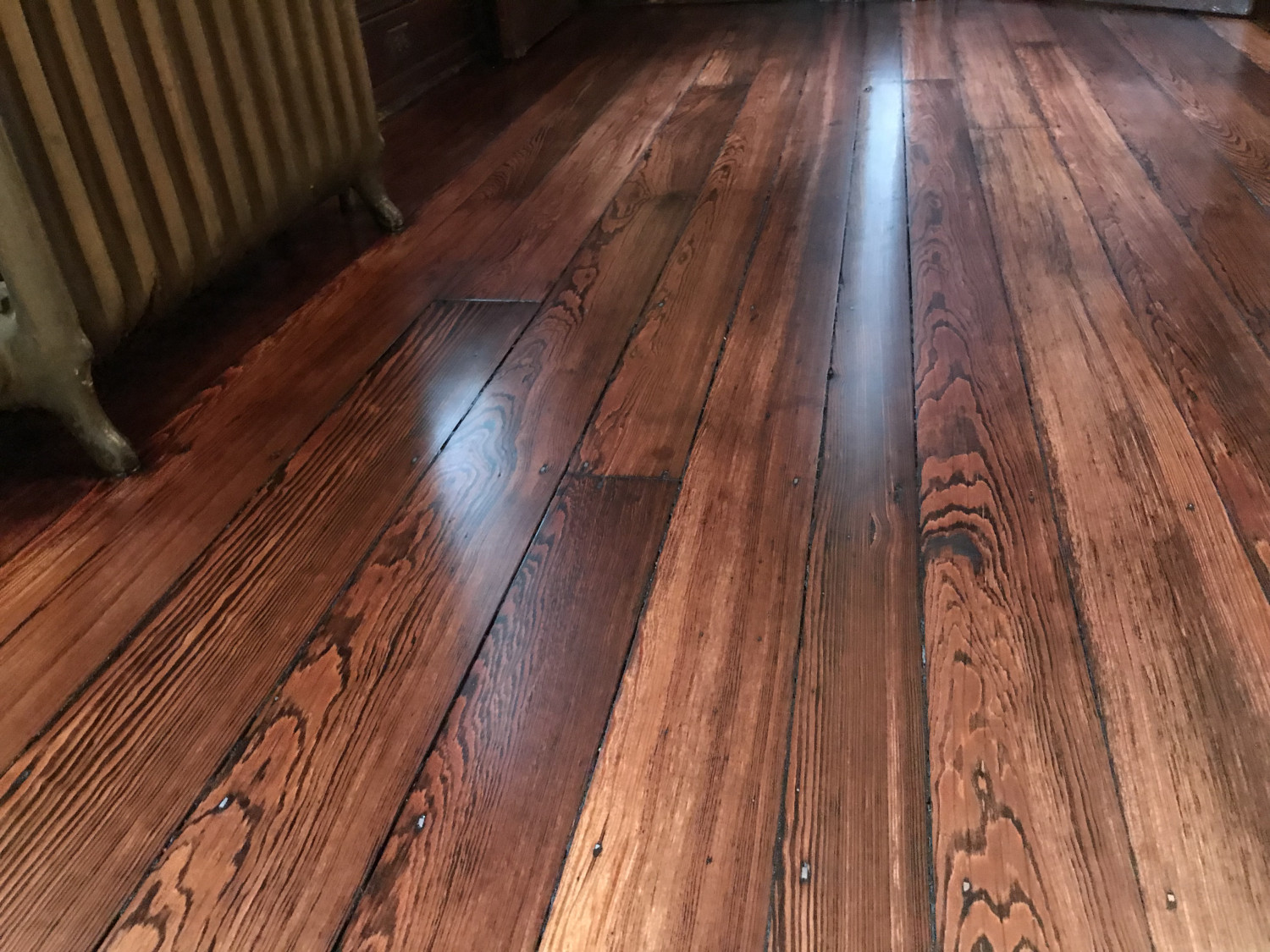
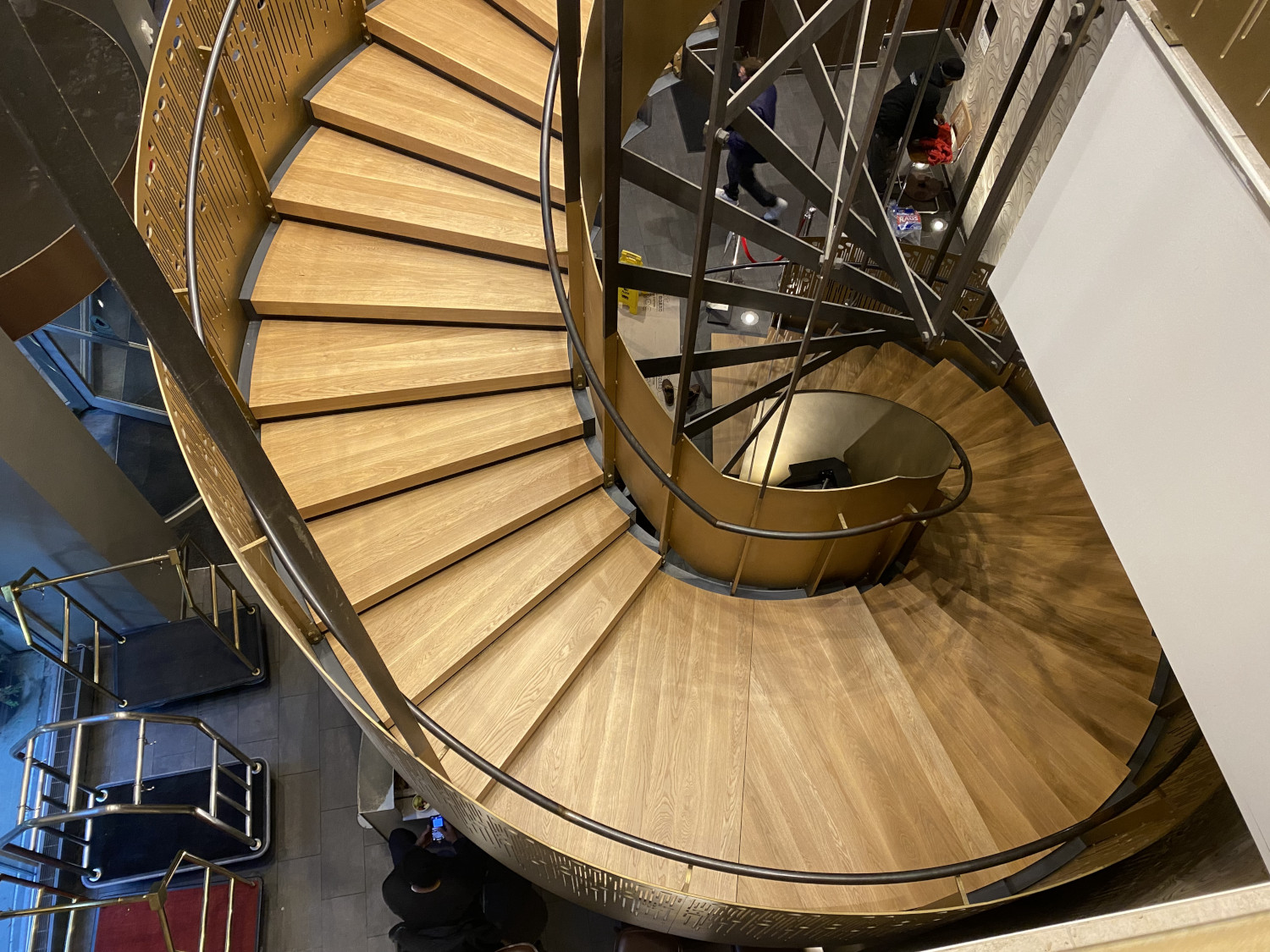
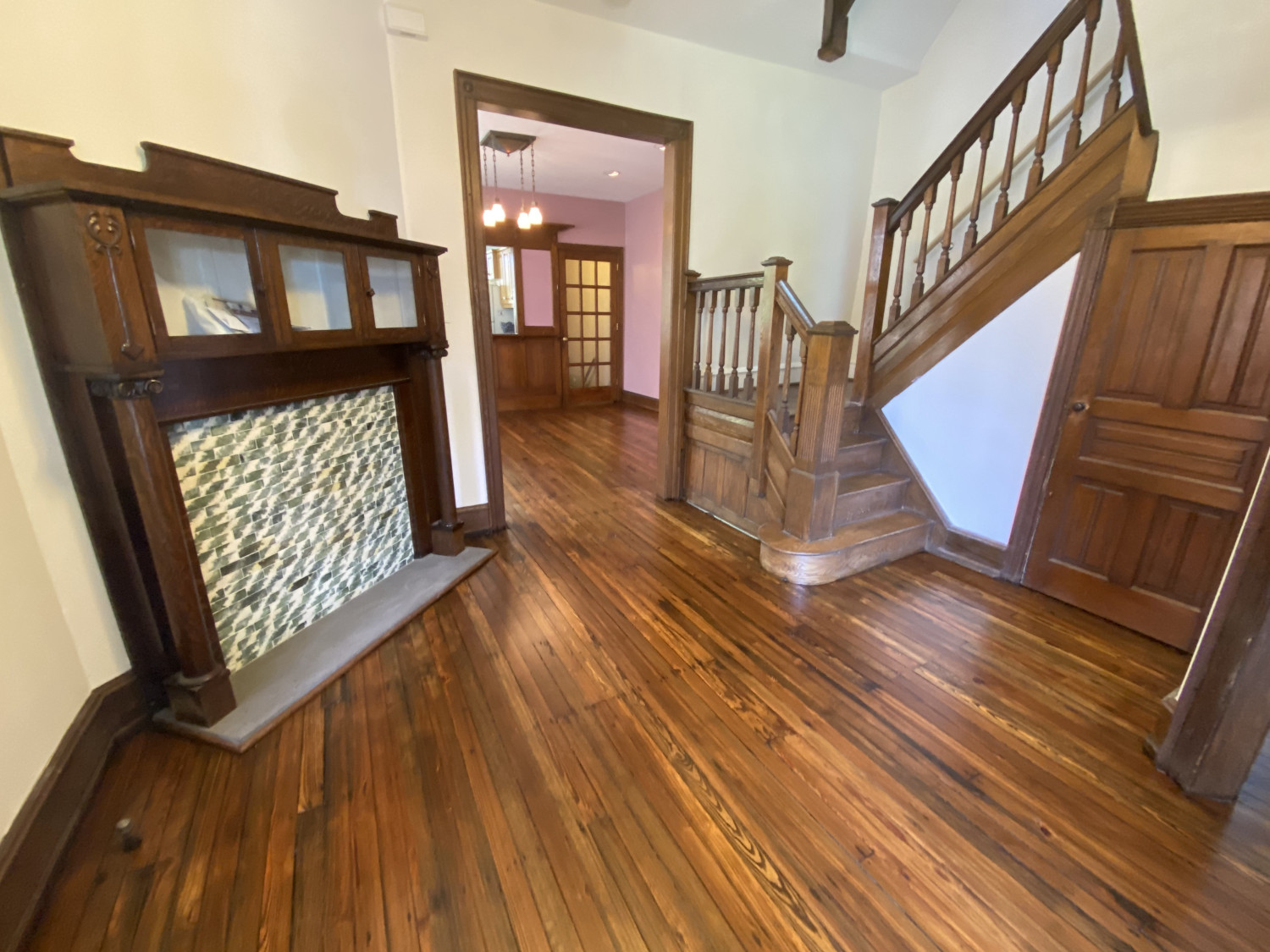

0 Comments